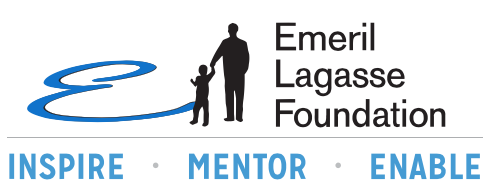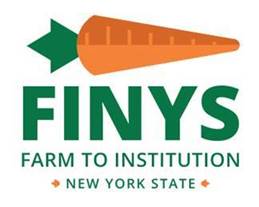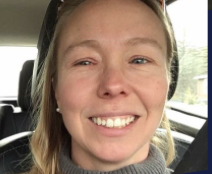|
New York Agriculture in the Classroom | May 2019
|
|
Stay Up To Date!
Want to stay up to date with NYAITC? Follow us on social media and never miss out on exciting news and opportunities!
|
Find us on Social Media!
Are you incorporating agriculture into your classroom? We want to see, tag us on social media @NewYorkAITC on Twitter and NYAITC on Facebook.
Give us a follow at @nyagintheclassroom on Instagram and see what's happening across the state in classrooms just like yours.
|
Important Dates:
May 21-23- On the Farm Event in Syracuse, NY
May 24- Ace the Waste Proposals Due
June 11-14- Meat Your Beef Tours (Various Locations)
June 18-21- National Agriculture in the Classroom Conference in Arkansas
Aug. 1- Emeril Lagasse Foundation Grant Apps Due
Oct. 16-18- Food and Farm Experience
|
|
|
Garden Seed Bundle Giveaway

New York Agriculture in the Classroom is offering 80 Garden Seed Bundles containing approximately 100 seed packets each. Each bundle contains a variety of seeds donated by Page Seed Company. Specific types of seeds are not guaranteed, and there will be vegetable, fruit, and flower seeds. To receive a Garden Bundle, follow the
link and fill out our request form. These bundles will be mailed out first come, first served.
|
"Meat Your Beef" Farm to Fork Tours

In partnership with the New York Beef Council, New York Agriculture in the Classroom is excited to announce the third annual "Meat Your Beef" Tour. This f
ood system training is available for teachers across the state who are
interested in
learning more about the meat production industry in New York, have questions about how beef cattle are fed, cared for, and marketed, and want to give a first-hand perspective on food production to their students. Learn more about this FREE opportunity and register here.
|
Are you looking for more project-based learning opportunities to implement in your classroom? "Ace the Waste!" is a student competition for food waste reduction ideas and is open to students ages 11-18 that was launched by the U.S. Department of Agriculture (USDA). Students may submit 1-2 page proposals or 1-2 minute videos. The winner of the challenge will be honored with recognition on USDA's social media accounts and website, receive a certificate of appreciation, and will have the opportunity to discuss their proposals with USDA leadership.
The deadline for proposals is
Friday, May 24, 2019. Find more information and details on how to submit a proposal here.
|
Feeding Food Waste to Animals
If you have a program with animals, please take a minute to review NYS law Article 5 Sec. 72a which pertains to feeding food waste to animals. The basis of the law is that garbage may not be fed to cattle, swine or poultry. The general definition of garbage is any food product which may have come into contact with a meat product at any point (raw or cooked). It has been shown that several diseases can spread through feeding "garbage" and it is the intent of this message to help educate you and your students of that important point. If you have any questions, or would like more information, you can reach out to Chad Wall (
chad.wall@agriculture.ny.gov or
(607) 643-3540) at the NYS Department of Agriculture and Markets.
|
|
|

Morning Ag Clips
Looking for more secondary sources your students can use in their writing and research? Educators can use Morning Ag Clips in their classroom to fill out their curriculum or to keep students up to date on what's going on now in agriculture. Morning Ag Clips collects in one place breaking news and information for today's modern farmer and rancher. They aggregate stories from the general media, industry trades, extension publications and other sources. Through their website or state-by-state daily e-blast, millions of farmers, ranchers, industry leaders, advocates, educators and friends of farming get the quick one-two on agriculture happenings every business day. Explore
Morning Ag Clips and get up to date on the latest news.
|
This year's FFX will be held on October 16-18, in Corning, NY, and will be packed with essential and useful information about agriculture. Participants will meet with industry experts, employers, and post-secondary educators. Organized tours will showcase a variety of stops along the journey from farm to fork and provide insights for the multitude of career opportunities available in the agricultural industry.
The participants for FFX are selected through a nomination/application process. A fillable pdf application and more information is available from
www.nyfbfoundation.org
. Deadline for submission is July 12, 2019.
|
School Garden Grant Opportunity

Does your school have a school garden at the elementary or middle school level? The
Emeril Lagasse Foundation is seeking applicants for a new
five-year grant program with money going toward maintaining and expanding existing school gardens, building out teaching kitchens and training teachers.
Interested schools should submit a letter of interest and then qualified schools will be sent additional application information. Letters of Interest are due August 1, 2019.
|
Call for Applications- New York State Farm to School Institute 2019 - 2020

The 2019 - 2020 NYS Farm to School Institute offers a comprehensive learning opportunity for food service staff, educators, administrators, and community partners in New York schools to develop and refine their Farm to School programs, and to help bring more New York grown food into the cafeteria and the classroom. This inaugural state-specific Institute is an annual year-long training and continuing education program. Six New York school teams will participate in a three-day Summer Retreat in Rhinebeck, NY to kick-off the year followed by a one-day Fall gathering in the Hudson Valley. Apply here:
https://finys.org/institute.
|
| Agricultural Literacy Grant Spotlight |
Lisa Dunne- Hawk Meadow Montessori School

The proposed project will be a year-long study of agriculture, food safety, food preparation and nutrition. Students will begin by taking an Agriculture class in which they would learn in the flower and vegetable garden at Sprout Creek Farm. They will participate in all aspects of growing fruits and vegetables, from soil care, to planting seeds, to harvesting.
Hawk Meadow students will then move from the garden into the Sprout Creek Farm kitchen for one Cooking Class with their Chef. The Sprout Creek Farm commercial kitchen will allow students to create and share a meal using fruits and vegetables grown in the garden and other farm products. Students will learn a wide array of kitchen and cooking skills and food preservation methods.
Once Hawk Meadow Montessori School students have taken the Agriculture and Cooking Classes at Sprout Creek, teachers at Hawk Meadow will build upon these lessons with additional instruction in the school's garden and greenhouse. They will also raise chicks, fish and visit other farms to learn about other types of livestock. The food prepared will be served at school for students to enjoy.
Learn more about the Agricultural Literacy Grant and view the other recipients on our
website
.
|
 |
Freshest Fruits
Students will learn about where fruits grow and their nutritional value by completing an activity to observe the size, shape, texture, and seeds of various fruits. This lesson is best for students in grades K-2.
|
John Deere, That's Who!
In this
lesson for students in grades K-2, students will explore how producers and consumers work together to meet human needs by using the book
John Deere, That's Who!
|
Honey Bees: A Pollination Simulation
In this lesson for grades 3-5, students will identify the parts of a honey bee, the stages of its life cycle, and its role in pollination. This lesson includes three activities all about honey bees and their role in the world's food supply.
|
Desktop Greenhouses
Students will investigate the importance of light to plants by creating a desktop greenhouse investigation and exploring the process of photosynthesis. This
lesson is best for students in grades 3-5.
|
| Middle School/ High School Resources |
Farm-to-Fork Augmented Reality
In this lesson, students will research the farm-to-fork process for various foods and create augmented reality videos using the
HP Reveal
app to educate consumers about where their food comes from. This lesson is available for grades 6-8 and grades 9-12.
|
Can We Have Too Much of a Good Thing?
In this lesson students will understand that plants require nutrients in the proper concentrations. Students will discover that plants can be damaged or killed by either too many or too few nutrients. This
lesson is recommended for students in grades 6-8.
|
FARMLAND: Animal Welfare
With the film
FARMLAND
, students will learn about the care of livestock on farms and consider regulations and the government's role in the industry. This lesson is recommend for students in grades 9-12 and is designed to prompt thought-provoking discussions.
|
Food Science: Bread Dough Challenge
Students in grades 9-12 will explore the phenomenon of what makes bread dough rise in this
lesson. Using baker's yeast, students will observe alcoholic fermentation and its connection to cellular respiration as they are challenged to act as food scientists and develop the best recipe for quick-rising bread dough.
|
The Boy Who Harnessed the Wind
In this
book by William Kamkwamba and Byran Mealer, you will read about when a terrible drought struck William Kamkwamba's tiny village in Malawi and his family lost all of the season's crops, leaving them with nothing to eat and nothing to sell. William began to explore science books in his village library, looking for a solution. There, he came up with the idea that would change his family's life forever-he could build a windmill. Made out of scrap metal and old bicycle parts, William's windmill brought electricity to his home and helped his family pump the water they needed to farm the land.
|
One Hundred Hungry Ants
One hundred hungry ants marched in a row, going to a picnic, but were they going too slow? This fantastic counting book allows students to work through simple addition by twos, fives, and tens. They will enjoy the flow of the text and the simple illustrations in this book.
|
 Little Joe
Little Joe
The novel
Little Joe
offers a realistic look at the bond between 9-year-old Eli Stegner and his Angus calf, Little Joe, as they prepare for the county fair -- and the beef auction that follows. Readers will be fascinated by the details of raising beef cattle and receive an in-depth account of life on the farm.
|
|
|
|
|
Copyright © 2018. All Rights Reserved.
|
|
|
|